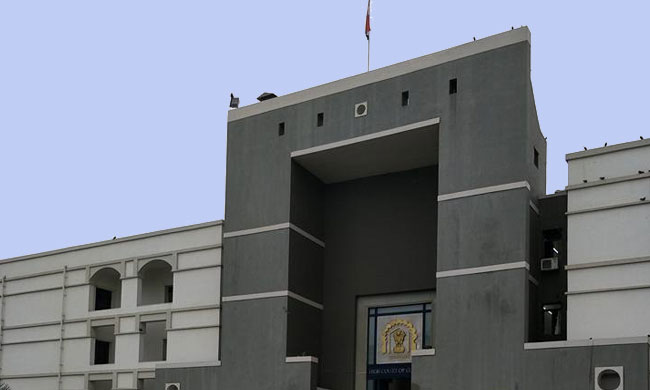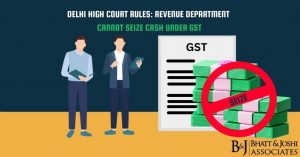Writ petition before the Gujarat High Court
What is writ petition before the Gujarat High Court
As per the Indian Constitution, under Article 226, High Courts can adjudicate on the aspects of Legal as well as Fundamental Rights, whereas Supreme Court can adjudicate on Fundamental Rights, under Article 32. In the context of State of Gujarat, a writ is an order by a Gujarat High Court to a Government authorities, Lower court or courts, directing them to do something or stop them from doing something. However, it shall be the same conceptual framework for all the High Courts. Writ is a form of written command in the name of the court. It directs you to act in a specific way. In this article we may explore the same in the context of Gujarat High Court or in the context of Article 226 of the Constitution of India.

Introduction
Fundamental Rights are contained in Part III of the Indian Constitution including the right to equality, right to life and liberty etc. Whereas, legal rights are rights enshrined under some statute, or they may simply be claimed by way of equity. However, mere provision for Fundamental Rights or Legal Rights may not be sufficient. The remedy to resolve, if your rights are violated is important. To protect Fundamental Rights as well as Legal Rights the Indian Constitution, under Article 226 provides the right to approach the High Court, Gujarat High Court more specifically, to any person/ citizens whose Right has been violated.
What is a writ?
Fundamentally, a writ is a formal written order issued by anybody, executive or judicial, authorized to do so. In modern times, this body is generally judicial. Therefore, a writ can be understood as a formal written order issued by a Court having authority to issue such an order. Orders, warrants, directions, summons etc. are all essentially writs.
A writ petition is an application filed before the competent Court, i.e. in this context Gujarat High Court, requesting it to issue a specific writ. As per the Indian Constitution, Gujarat High Court holds powers under Article 226, against the decision of any court/individual lower according to their jurisdiction. A Writ petition for a civil or criminal nature depending on the situation can be filed by an Individual/aggrieved party to a higher level of court against the order/decision of the lower court.
Under What Circumstances you may need to writ petition before High Court of Gujarat?
Writ petition is generally filed in contravention of rights or injustice is served to any individual/aggrieved. In the Context of State of Gujarat, it is a remedial measure provided by the constitution against the authority regulating the law and order in the country for the following reasons:
- To help citizens defend their rights against court orders.
- To provide an alternative to the aggrieved when impugned order is not objected by the appeals made to the authorized higher authorities in the legal system.
- To make sure justice served but not justice denied.
You can file the writ petition in Gujarat High Court under Article 226 of the Indian constitution. You can also file Writ Petitions in India for a civil or a criminal act.
- You can file a criminal writ petition when the cause of action in relation to the criminal law such as the right of accused, bail, etc.
- You can file a civil writ petition when someone commits a civil wrong such as IPR, taxes, etc.
Types of Writs before Gujarat High Court
There are about five types of Writs, which one can file before the Gujarat High Court
- Writ of Habeas Corpus:
- A petition for personal liberty or release from detention can be filed by an Individual through a petition of Habeas Corpus which means ‘to have control of body’. On receipt of the petition against the order of the lower court or the individual under which the person is or being detained, the court can issue a direction of release.
- It is in the nature of an order calling upon the person who has detained another to produce the latter before the court
- To know on what ground he has been detained
- To set him free if there is no legal justification for the
imprisonment
- For instance, a writ petition of Habeas Corpus for release of any person can be made if he is to be placed before the magistrate within 24 hours or if he is arrested for no reason or the reason for his arrest is unjustifiable.
- Increasing Scope of Habeas corpus
- Kanu Sanyal v. District Magistrate: the court may examine the legality of the detention without requiring the person detained to be produced before it
- Sheela Barse v. State of Maharashtra: if the detained person is unable to pray for the writ of habeas corpus, someone else may pray for such writ on his behalf.
- Nilabati Behera v. State of Orissa: The petitioner was awarded compensation of Rs. 1, 50, 000.
- Writ of Mandamus:
- A petition to issue a command is a Writ of Mandamus. To issue a direction to a lower authority or to any Individual to restrain him from doing any activity, which can result in injustice to the general public or any specific group or individual. Such a petition can command any public authority or tribunal to perform an act which it is bound to perform.
- The Writ can granted against a public authority if
- Acted against the law
- Exceeded his limits of power
- Acted with mala fides
- Did not apply his mind
- Abused his discretionary powers
- Did not take into account relevant consideration
- Has taken into account irrelevant consideration
- For instance, It is the duty of the Judge of a Court to make a decision only on the basis of relevant facts presented, if he fails to do so, with the filling of a petition to a Superior Court, he can be made to do an action in a prescribed way.
- Case Laws
- Hemendra v Gauhati University : Mandamus was issued to direct a University to announce that the petitioner has passed where, University had refused so to declare though the petitioner had
obtained the pass marks required by the statutory rules of the University. - Barada Kanta v State of West Bengal : Writ of Mandamus cannot be issued against an individual person or any private organization because they are not entrusted with a public duty.
- Hemendra v Gauhati University : Mandamus was issued to direct a University to announce that the petitioner has passed where, University had refused so to declare though the petitioner had
- Writ of Prohibition:
- A petition to issue a direction or command to any local authority or court to restrict it from acting beyond its jurisdictional powers. A writ of prohibition popularly known as ‘stay order’ is usually issued with the consequences for doing any act or taking action against its reserved powers.
- It means “To be Certified”. Both preventive and curative. Issued by SC and HC’s for quashing the order of any inferior court, tribunal or Quasi Judicial body.
- Propositions laid in issuing this writ by the High Court in Hari Vishnu Kamath Vs. Ahmad Ishaque 1955-I S 1104 : ((s) AIR 1955 SC 233)
- It is issued to correct the errors of Jurisdiction.
- When court or tribunal acts illegal in its jurisdiction.
- Order against principles of natural justice.
- Court acts in exercise of its supervisory and not appellate Jurisdiction.
- An error in the decision or determination itself may also be amenable to a writ of Certiorari.
- For instance, a Writ of Prohibition can be filed with the Supreme Court to restrict any High Court from taking any decision which is not in the authority of the High Court (‘HC’).
- Case Laws:
- Nagendra Nath Bora & Anr. Vs. Commissioner of Hills Division and Appeals, Assam & Ors., (1958) SCR 1240, the parameters for the exercise of jurisdiction.
- Check whether inferior court has exceeded its jurisdiction.
- Mere formal and technical errors doesn’t attract this.
- Nagendra Nath Bora & Anr. Vs. Commissioner of Hills Division and Appeals, Assam & Ors., (1958) SCR 1240, the parameters for the exercise of jurisdiction.
- Writ of Certiorari:
- A petition to issue an order or command against the decision or order of the lower authority where it was found that the authority has disregarded the laws and principles of natural justice in taking the decision is a Writ of Certiorari. In short, the petition calls for the records or the facts from the lower authority on the basis of which any summon or order was issued. On the satisfaction of facts /records placed by the lower authority, the decision shall be accepted or restricted.
- For instance, A Writ of Certiorari can be filed by any aggrieved person against the decision of any District Court (DC) to any High Court through which the is sought to be nulled/ quashed.
- Propositions laid in issuing this writ by the High Court in Hari Vishnu Kamath Vs. Ahmad Ishaque 1955-I S 1104 : ((s) AIR 1955 SC 233)
- It is issued to correct the errors of Jurisdiction.
- When court or tribunal acts illegal in its jurisdiction.
- Order against principles of natural justice.
- Court acts in exercise of its supervisory and not appellate Jurisdiction.
- An error in the decision or determination itself may also be amenable to a writ of Certiorari
- Writ of Quo Warranto:
- A petition to restrict – a person to hold a position in any government office or involvement in any decision relating to the victim is a Writ of Quo Warranto. It is required to prevent the official to exercise any powers of the position as such which he is not entitled to hold and/or to nullify the decision taken by him if any. The writ shall be applicable to all public offices and not on private organizations.
- Issued to restrain a person from holding a public office subject to following Conditions:
1. Public office created by a statue
2. Person to be appointed by a statue or statutory instrument. - For instance, to restrict a person incompetent to hold the position of a sub-inspector due to his incapability or low qualification, a Writ of Quo Warranto can be filed with the appropriate court of justice.
- It means “what is your authority”.
- Subramanian Swamy petition against Jayalalitha in 2001. Two PIL’s against her
appointment. - Manohar Reddy vs Union of India: two advocates filed a petition quashing the appointment of a Judge of a HC of AP and a writ is in the nature of Mandamus commanding the Bar Council of AP to cancel the enrollment as an advocate N V Ramana.
- Subramanian Swamy petition against Jayalalitha in 2001. Two PIL’s against her
Judicial Review
- Over and above forms of writ, Judicial review is the idea, fundamental to the system of government, that the actions of the executive and legislative branches of government are subject to review and possible invalidation by the judicial branch. Judicial review allows the Supreme Court to take an active role in ensuring that the other branches of government abide by the constitution. Judicial review was established in the classic case of Marbury v. Madison, 5 US 137 (1803). Dealt under Article 13, Article 32 and Article 226 of the Constitution of India, Judicial review is one of the checks and balances in the separation of powers. It is the power of the judiciary to supervise the legislative and executive branches when the latter exceed their authority.
- Judicial review should be understood in the context of both the development of two distinct legal systems (civil law and common law) and two theories of democracy (legislative supremacy and separation of powers) is that some countries with common-law systems do not have judicial review of primary legislation.
To Conclude:
The concept of Writ petition was brought in the Constitution of India to help a victim if he/she is deprived of any right or injustice made to him or to help him fight against any decision taken by the last legal authority. To file a Writ petition before Gujarat High Court the person has to either take the help of a legal adviser or hire a lawyer to file a petition on his behalf.
Please Note:
- Concept of Writ petition is universal across all the High Courts in the Context of Legal as well as Fundamental rights, within the scope of Article 226 of Indian Constitution and also before the Supreme Court in the context of Fundamental Rights under Article 32. But the present article is written in the context of Gujarat High Court, therefore there is largely reference to Gujarat High Court.
To know the difference between Write and Appeal, Click here.









